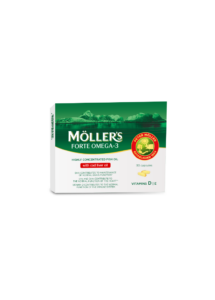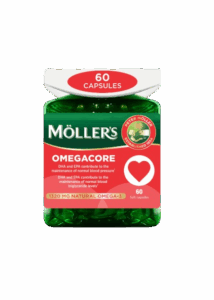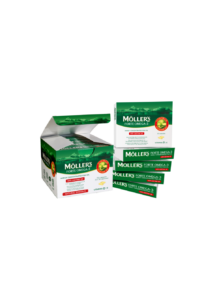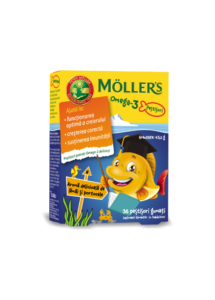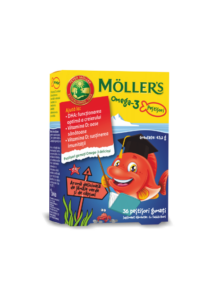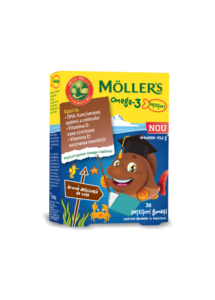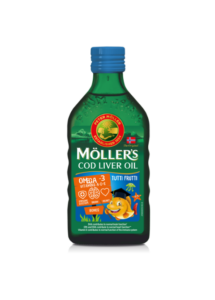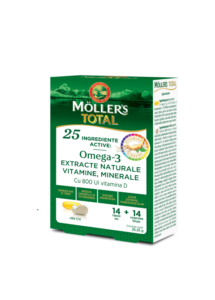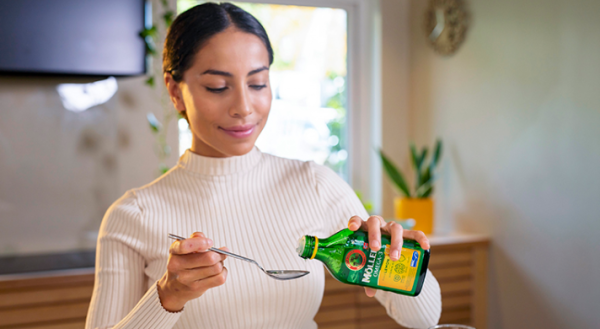Omega-3 masne kiseline dobre su za zdravlje srca, mozga i očiju. Budući da ih tijelo ne može učinkovito proizvoditi samo, potrebno ih je unositi prehranom. Stoga je korisno znati razlike između raznih izvora omega-3 masnih kiselina.
Home » Nisu svi izvori omega-3 masnih kiselina isti

Tipični izvori omega-3
Većina ljudi zna da su masne ribe poput lososa, pastrve, srdele, skuše, inćuna i haringe odlični izvori omega-3 – zapravo, najbolji izvori. Ove vrste ribe sadrže dugolančane omega-3 masne kiseline EPA i DHA, za koje su dokazani najbolji učinci na zdravlje.
Ne samo za večeru
Važno je znati da proizvodi poput namaza od riblje ikre i konzervirane skuše u umaku od rajčice također imaju visok sadržaj omega-3. Nije nužno sav dnevni unos masnih kiselina ostvariti tijekom večere; unos možete rasporediti kroz više obroka tijekom dana. Zašto ne biste doručkovali namaz od ikre ili nekoliko fileta inćuna na jajetu? A za ručak, primjerice, pojeli nekoliko krekera sa skušom u umaku od rajčice?
Ostali izvori omega-3
Što ako ne volite ribu? Omega-3 nalazi se i u drugim namirnicama poput oraha, bučinih sjemenki te ulja repice, lana i soje. Ove namirnice bogate su biljnim kratkolančanim omega-3 masnim kiselinama (ALA). Iako je i ALA omega-3 masna kiselina, nema jednako pozitivan učinak kao morske masne kiseline EPA i DHA. Tijelo mora pretvoriti ALA u EPA i DHA, no konverzija je ograničena i vrlo spora.
Omega-3 kao dodatak prehrani
Zbog ograničenih izvora omega-3, mnogi ljudi odabiru dodatke prehrani kako bi osigurali dnevni unos od 250 mg EPA i DHA. Pri odabiru dodataka prehrani potrebno je obratiti pozornost na kvalitetu, jer postoje značajne razlike među proizvodima. Kvalitetan dodatak prehrani, poput tradicionalnog Möller’s ulja jetre bakalara, trebao bi sadržavati optimalnu količinu korisnih morskih omega-3 masnih kiselina.
What is good health?
Do you have a good lifestyle?
Lifestyle simply means the way in which you live. Health and lifestyle go hand in hand. You might feel you have a good lifestyle if you are physically active, eat healthily and generally experience a sense of wellbeing. Conversely, if you want good health you should also have a good lifestyle.
Physical activity is the major contributor to a good lifestyle, but diet, drugs, stress, sleep and social conditions are also play an important role. Being able to use the body properly to avoid injury also affects lifestyle. Physical activity can also prevent depression and help you to recover more quickly from mental illness, both of which obviously affect your lifestyle.
Diet can be a difficult topic for many. Perhaps you eat too much or too little or maybe you find it hard to know what foods to combine to have a balanced diet. It’s also important to eat food that contains important vitamins, minerals and dietary fibre, omega-3 and antioxidants. On top of all this, you also need to get enough energy, protein and the correct fatty acids. The requirement for these nutrients changes throughout your life. When you are older you also have different requirements than children and younger adults. Women also have different requirements than men. Pregnant and breastfeeding mothers also have special requirements.
When you get older, you lose muscle mass and your body requires less energy and therefore less food. You may lead a less active life than you did before, which is why you require less food. However, your need for minerals, vitamins and other nutrients remains the same. Of course, there are plenty of healthy and active older people, but when you reach 70 to 80 years of age, it’s easier to become ill, especially during flu season.
Some steps you can take to improve your lifestyle and health are to:
- eat a healthy and varied diet
- stay active
- watch your weight
- avoid too much alcohol and don’t smoke
- get enough sleep
- think positive
- practise good hygiene
What is good quality of life?
The World Health Organisation (WHO) defines quality of life as a state where the individual can realise their potential, cope with normal stressful situations, work in a rewarding and positive way, and be able to contribute to others and society.
Quality of life is a wide and somewhat diffuse concept that includes joy in, and a desire for, life. These are values that are rather felt than measured, which in turn are based on personal environment and choices. Quality of life doesn’t necessarily depend on being healthy or sick. It’s the moments between worries, sorrows, problems and ailments that matter. For example, if you have a chronic illness, a feeling of mastery can be important when talking about quality of life.
To sum up, quality of life is a combination of health, lifestyle, networks and social support. It’s about experiencing joy, meaning in life, satisfaction, security and a sense of belonging, as well as being able to use your strengths. It’s also about feeling interest in life, coping with everyday situations and a being committed to something or someone. If you have good quality of life, you will be able to cope better with the inevitable stressful situations in life.
Naši proizvodi
MÖLLER'S FORTE OMEGA 30 kapsule
MÖLLER'S OMEGACORE
MÖLLER'S FORTE OMEGA 150 kapsule
MÖLLER'S OMEGA 3 RIBICE s okusom NARANČE I LIMUNA
MÖLLER'S OMEGA 3 RIBICE s okusom JAGODE
MÖLLER'S OMEGA 3 RIBICE s okusom COLE
MÖLLER'S OMEGA 3 ULJE JETRE BAKALARA s okusom TUTTI FRUTTI
MÖLLER'S OMEGA 3 ULJE JETRE BAKALARA s okusom LIMUNA
MÖLLER'S TOTAL
Saznajte više
Zašto Möller’s? Pouzdan i kvalitetan izvor omega-3 iz Norveške
imunitet omega-3
Dobro zdravlje, stil života i kvaliteta života – što to zapravo znači?
Ulje jetre bakalara ZDRAVO STARENJE
Ulje jetre bakalara i vaš imunološki sustav
imunološki sustav Ulje jetre bakalara
Pronađite inspiraciju na našem Instagramu
This error message is only visible to WordPress admins
Error: Access Token is not valid or has expired. Feed will not update.
